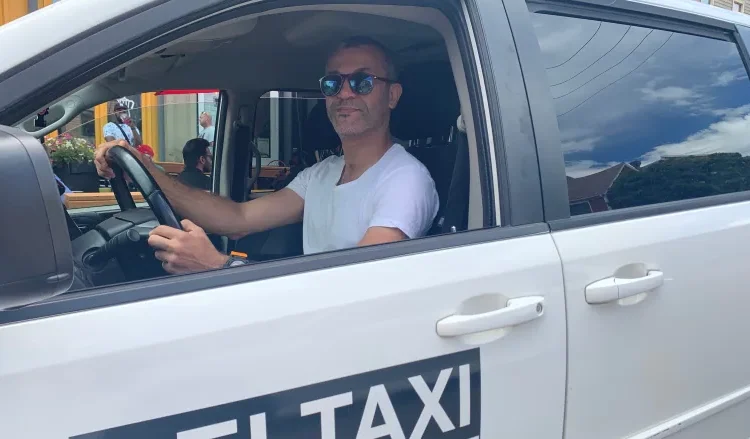Newcomers from other nations still face 1-year graduated program to earn full licence
Experienced drivers moving to P.E.I. from some foreign countries will soon be able to earn their full Class 5 licence without spending at least a year in the graduated program.
The province is working on a program with driving schools. Once they have their full Class 5, they are able to apply for classification to become commercial drivers — for example, a taxi or truck driver.
P.E.I. has a reciprocity agreement with nations including the U.S., U.K. and Japan that allow for the simple exchange of driver’s licences when their citizens relocate.
However, people from countries without such an agreement — such as India, China and Brazil — must complete the existing tests and spend at least one year in the graduated program, which comes with passenger limits and other restrictions.
- Mandatory course coming for some newcomers seeking a P.E.I. driver’s licence
- P.E.I. makes it easier for Ukrainian newcomers to get driver’s licence
“If you’re an adult and you’re married and have children and you may wish to look for other job opportunities, when you’re in the graduated program, you can’t upgrade into the commercial classes,” said Graham Miner, director of P.E.I.’s Highway Safety division.
The new program, called the Licensed Driver Education Course, is expected to available by mid-September. It will be administered by driving schools on P.E.I., with a cost of about $700.

Eric Brookins, general manager for Safe Drivers P.E.I., said it will solve “some pretty big loopholes” in P.E.I.’s licensing regime.
“A driver can come from somewhere like Poland or something [with] many years of driving experience… But when they come here, they’re then being given a licence that comes with the restrictions as if they were a brand-new driver with no experience.”
‘Fragile’ industry
The change should be good news for taxi companies and people who want to drive for work.
Osama Abdoh, owner and director of P.E.I. Online Taxi, is always on the hunt for new drivers.
But he also said the lack of taxi drivers on P.E.I. has less to do with obtaining a licence and more to do with the ability to make a living in what he calls a “fragile” industry. With the high cost of gas and vehicle maintenance, drivers rely on tips just to get them over what would amount to about minimum wage, he said.
“That’s why I have 80 per cent foreign drivers, not local, because locals will not apply for this job,” Abdoh told CBC News. “They don’t want it. They can do better elsewhere.”

Abdoh said some newcomers may not be able to afford the course, on top of regular fees required to get a licence. But he said anything that can potentially get them on the road more quickly — and safely — is helpful.
“Driving in winter … is a new thing and it’s a skill they need to develop, and at least they should.”
Brookins is confident anyone who completes the new course will be prepared to drive on Prince Edward Island.
“Any driver instructor can tell you, within the first hour of being in a car with someone, … what their driving experience has been, if any. It’s one of those things you simply can’t fake.”
Different languages
Joe Byrne, manager of Abegweit Driving School, said three-quarters of one recent class was made up of newcomers. The company has instructors who can speak several different languages to meet the demand for training.
Doing shoulder checks, yielding to pedestrians and sharing the road with cyclists are some of the key lessons the school emphasizes to people from countries where those habits may not be as common.
In lots of countries, what’s behind you really doesn’t matter, and pedestrians don’t have the right of way.
“On P.E.I., we’re responsible when we drive for what’s going on in front of us; on both sides, right and left; and also what’s behind us,” Byrne said. “And in lots of countries, what’s behind you really doesn’t matter, and pedestrians don’t have the right of way …
“That’s a huge transition, if you’re coming from a place where people don’t do it. You have to get in the habit of moving your head and eyes.”
But as Brookins points out, learning to break bad habits isn’t exactly unique to newcomers.
“You drive around P.E.I. — how many people do you see roll [through] a stop sign?”


